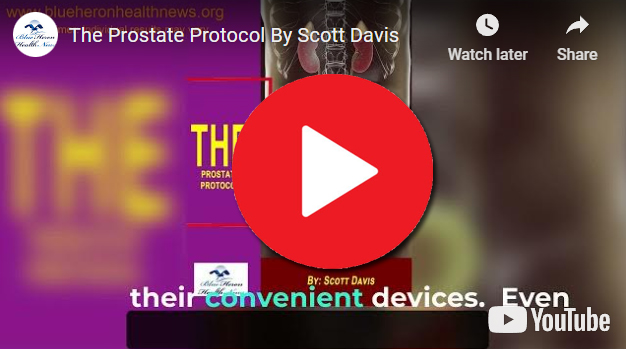
The Prostate Protocol By Scott Davis The Prostate Protocol is designed for all those who want a natural solution for BPH. The online program can help users to treat BPH. Also, it will address the root cause and prevent a recurrence. You might not expect this benefit from conventional treatments. The program is the outcome of extensive research.
What are the side effects of hormone therapy for prostate cancer?
Hormone therapy for prostate cancer, also known as androgen deprivation therapy (ADT) or androgen suppression therapy, involves reducing the levels or blocking the action of androgens (male hormones) such as testosterone. While this therapy can be effective in slowing the growth of prostate cancer, it can also lead to a range of side effects due to the reduction in androgen levels. These side effects can vary in severity and may affect different aspects of physical and emotional health. Here are some of the most common side effects associated with hormone therapy for prostate cancer:
1. Hot Flashes
- Description: Sudden feelings of warmth, often accompanied by sweating and redness, usually in the face and upper body.
- Prevalence: One of the most common side effects of hormone therapy, occurring in many men undergoing treatment.
- Management: Medications such as antidepressants or hormonal treatments, as well as lifestyle modifications like wearing light clothing and avoiding hot drinks, may help manage symptoms.
2. Sexual Dysfunction
- Erectile Dysfunction: Difficulty achieving or maintaining an erection is a common side effect, as testosterone plays a crucial role in sexual function.
- Loss of Libido: Reduced interest in sexual activity can occur due to lower testosterone levels.
- Fertility Issues: Hormone therapy can reduce sperm production, potentially leading to infertility.
3. Fatigue
- Description: Persistent tiredness or a lack of energy that is not relieved by rest.
- Cause: Fatigue may result from hormonal changes, emotional stress, or other side effects like anemia.
4. Weight Gain
- Description: Increase in body weight, particularly an increase in body fat, especially around the abdomen.
- Management: A healthy diet and regular exercise can help manage weight gain.
5. Loss of Muscle Mass and Strength
- Description: Reduction in muscle mass and strength, leading to decreased physical performance and endurance.
- Cause: Testosterone is important for maintaining muscle mass, and its reduction can lead to muscle wasting.
- Management: Strength training and physical activity can help mitigate muscle loss.
6. Bone Density Loss (Osteoporosis)
- Description: Decreased bone density, increasing the risk of fractures.
- Cause: Testosterone helps maintain bone density, and its loss can lead to weakened bones.
- Management: Bone density monitoring, calcium and vitamin D supplementation, and medications like bisphosphonates or denosumab can help prevent bone loss.
7. Metabolic Changes
- Increased Body Fat: Redistribution of fat, often leading to increased abdominal fat.
- Changes in Cholesterol Levels: Hormone therapy can lead to increased LDL (bad cholesterol) and decreased HDL (good cholesterol) levels.
- Insulin Resistance: Increased risk of developing insulin resistance, which can lead to type 2 diabetes.
8. Cardiovascular Risk
- Description: Increased risk of cardiovascular issues such as heart disease, hypertension, and stroke.
- Cause: The exact mechanism is not entirely understood, but changes in cholesterol levels, body fat distribution, and insulin resistance may contribute.
9. Mood Changes and Cognitive Effects
- Depression and Anxiety: Hormone therapy can affect mood, leading to depression, anxiety, or irritability.
- Cognitive Changes: Some men may experience memory issues, difficulty concentrating, or other cognitive changes.
10. Gynecomastia and Breast Tenderness
- Gynecomastia: Enlargement of breast tissue in men, often accompanied by tenderness or pain.
- Cause: Hormonal changes can lead to an imbalance between estrogen and testosterone levels, stimulating breast tissue growth.
11. Anemia
- Description: Lower than normal levels of red blood cells, leading to fatigue, weakness, and shortness of breath.
- Cause: Testosterone plays a role in the production of red blood cells, and its reduction can lead to anemia.
12. Gastrointestinal Symptoms
- Nausea and Diarrhea: Some hormone therapies can cause gastrointestinal side effects, including nausea and diarrhea.
13. Loss of Body Hair
- Description: Reduced hair growth or thinning of body and facial hair due to decreased androgen levels.
14. Reduced Testicular Size
- Description: The testicles may shrink due to the reduced production of testosterone.
Managing Side Effects
Managing the side effects of hormone therapy for prostate cancer involves a comprehensive approach that may include:
- Medications: To address specific side effects like hot flashes, bone density loss, or cardiovascular risks.
- Lifestyle Changes: Including diet, exercise, and stress management techniques to maintain overall health and well-being.
- Regular Monitoring: Regular check-ups and monitoring of bone density, cardiovascular health, and metabolic parameters.
- Support Services: Psychological support, counseling, and support groups can help manage emotional and mental health challenges associated with hormone therapy.
Conclusion
Hormone therapy for prostate cancer can lead to a range of side effects due to the reduction in androgen levels. These side effects can impact physical, emotional, and sexual health. It is important for patients to work closely with their healthcare providers to manage these side effects, adjust treatment as needed, and maintain a good quality of life. Regular monitoring and a proactive approach to managing symptoms can help mitigate the impact of hormone therapy on overall health and well-being.

The Prostate Protocol By Scott Davis The Prostate Protocol is designed for all those who want a natural solution for BPH. The online program can help users to treat BPH. Also, it will address the root cause and prevent a recurrence. You might not expect this benefit from conventional treatments. The program is the outcome of extensive research.